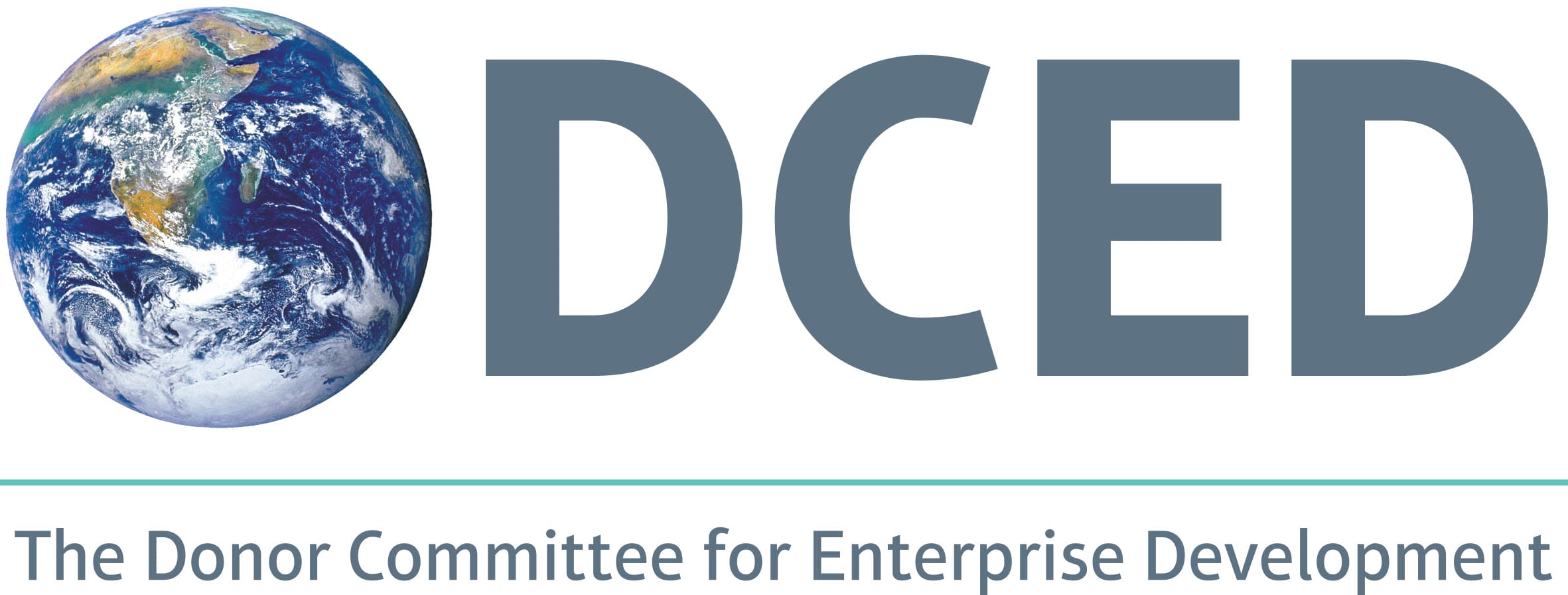The Donor Committee for Enterprise Development and the BEAM Exchange organised a two-day event featuring a lively interactive programme drawing on practical field experience. There were about 140 participants, including 27% staff of DCED member agencies. 73 participants filled in feedback forms; 85% of those reported that the event had fully met their expectations.
A summary report on the event is available here.
Seminar agenda, presentations and handouts
Wednesday 21st February 2018
Session 1, 08:30 – 10:00
- Welcome and opening walk through the agenda
- World cafe
Session 2, 10:30 – 12:00
- Breakout 2.1: Urban Messiness: Income generation in cities
Ben Taylor (Springfield Centre), Nathalie Gunsekera (Mercy Corps) – Urban Messiness: Income generation in cities
- Breakout 2.2: The DCED Standard: What is it? How can it help you?
Nabanita Sen Bekkers – An Introduction to the DCED Standard for Results Measurement
Kamau Kuria and Judy Odongo (KMT) – Successes & Lessons: Managing the KMT MRM System
- Breakout 2.3: Businesses create impact: adaptive management, feedback loops and the role of businesses in results measurement
Mollie Liesner (ITAD), Ben Fowler (MSA) – Businesses create impact: adaptive management, feedback loops and the role of businesses in RM
Session 3, Plenary session, 13:30 – 15:00
- MSD & Job quality – ILO Lab and decent work
Steve Hartrich (ILO), Raksha Vasudevan (MSA), Leanne Rasmussen, Callie Ham (ILO) – combined presentations here.
Session 4, 15:30 – 17:00
- Breakout 4.1: Creating jobs in urban waste management
Gerry McCarthy and Ailsa Buckley – Sharing practical experience in solid waste collection and recycling, from Coffey in Nigeria and Swisscontact in Tanzania.
Video about iDE’s experience with market-driven latrine services in Bangladesh:
- Breakout 4.2: What can qualitative approaches bring to assessing results? Experiences using mixed methods and realist evaluation approaches
GB Banjara (Swisscontact), Babui Salsabil (Swisscontact) – Katalyst’s Experience of Using Mixed Methods in Measuring Results
Ed Hedley (ITAD) – Using Realist Evaluation: Itad experience
- Breakout 4.3: Let’s hear it for technology: results measurement and tech solutions
Amleshwar Singh (Swisscontact) – Sahaj-NAMDP Information Management System
Khaled Khan (Palladium) – Powerful Data Visualization with Power BI
Adriana Mendieta (Swisscontact) – Transforming Data into Meaningful Results Using Power BI
Mohammed Nurul Azam (Palladium) – Using GIS to measure impact of tractor interventions
Sylvanus Albua (DAI) – Using GIS to enhance the functionality of MRM systems
- Breakout Session 4.4: Creating decent work and formal jobs for vulnerable women migrating to cities
Devon Krainer (MEDA) – Creating decent work for women and youth migrating to cities: India’s home healthcare system
Nebil Kellow (Enterprise Partners) – Supporting Ethiopia’s industrial transformation
Thursday 22nd February 2018
Session 6, 8:30 – 10:00
- Breakout 6.1: The results achieved by programmes using the markets systems approach (Evidence for success: definitions, results and responsibilities)
Mike Albu (BEAM), James Robinson (ITAD), Mollie Liesner (ITAD), Jim Tanburn (DCED) – Evidence of success
- Breakout 6.2: What can qualitative approaches bring to assessing contribution? Experiences using outcome harvesting and contribution analysis
Zakaria Tavberidze (Mercy Corps – ALCP) and Tim Sparkman (Helvetas) – Outcome Harvesting for ALCP’s Purposeful and Potential Consequences
Ed Hedley (ITAD), Gordon Freer (ITAD) – Using Contribution Analysis in M4P: Evaluating Samarth-NMDP
- Breakout 6.3 (split session): Industrialisation sector: challenges and opportunities for results measurement + Job creation in the tourism sector: using multipliers to estimate employment creation
Adam Kessler (Enterprise Partners) – What have we learned from results measurement in industrialisation programmes?
Muaz Jalil (Palladium), Mujaddid Mohsin (Palladium), Syeda Samira Saif (Palladium) – Estimating Tourism Impact Using Multipliers
Fisnik Bajrami – Tourism Employment Proxy and Multipliers – PPSE case
Session 7, Plenary session, 10:30 – 12:00
- The competencies needed for market systems development
Mike Albu (BEAM Exchange) – A competency framework for market systems development
Rubaiyath Sarwar (Innovision Consulting) – Building High Performing MSD Teams
Session 8, 13:30 – 15:00
- Breakout Session 8.1: Jobs & urban growth from IT services in Palestinian Territories
Bill Grant (DAI) – Stimulating technology markets to tackle urban unemployment
Arsalan Ali Faheem (DAI) – Palestinian Market Development Programme
Naomi Somerville-Large (DAI) – Arab Women’s Enterprise Fund
Ryan Sturgill (Mercy Corps) – Accelerating Gaza’s Tech Eco-system
- Breakout Session 8.2: Adaptive management and RM: Integrating the DCED Standard with other approaches (USAID Collaboration, Learning and Action and CGAP)
Bilash Mitra (ACDI VOCA) – Using elements of the DCED Standard for CLA
Deanna Morris (UNCDF), Muaz Jalil (UNCDF) – MRM System for a Financial Inclusion Program: The Case of UNCDF’s SHIFT ASEAN Program
- Breakout Session 8.3: Small but mighty: Applying the DCED Standard to small programmes
Julius Mutio (ILO), Mena Gul Hemat (ILO) – Making the most of the DCED Standard in
a small programme in a fragile context: Lessons in applying the Standard amongst the constraints
Session 9: Final plenary, 15:30 – 16:30
- Insights gleaned during the two days
- Next steps
Additional resources
The following videos were provided by Propcom Mai-karfi, a programme that was represented at the Seminar:
- General overview: https://www.youtube.com/watch?v=90vUobUSzgw
- Women’s economic empowerment in northern Nigeria: https://www.youtube.com/watch?v=Idrdi9ntzK4
- Aggregation and storage – https://youtu.be/8Bs_QhEv5Js
- Access to finance – https://youtu.be/bB7RKogHapU
- Access to agricultural inputs – https://youtu.be/CSbGsUYBCP8
Feedback from participants in the 2018 Seminar
- “Went by so quick! Excellent technical content.”
- “Seeing diverse MRM processes across various programs has helped me gain broader perspective about my work.”
- “It was my first time. It was very good to know what is going on around the world on MSD/DCED and others.”
- “Presentations on non-traditional sectors were very interesting.”
- “I enjoyed the diverse format, shifting between plenary and breakouts. Breaks were adhered to and the schedule wasn’t over burdened. Having a theme.”
- “The presentation on competencies needed for MSD was extremely helpful to design coming MSD teams and projects.”
Previous events
Co-sponsors


